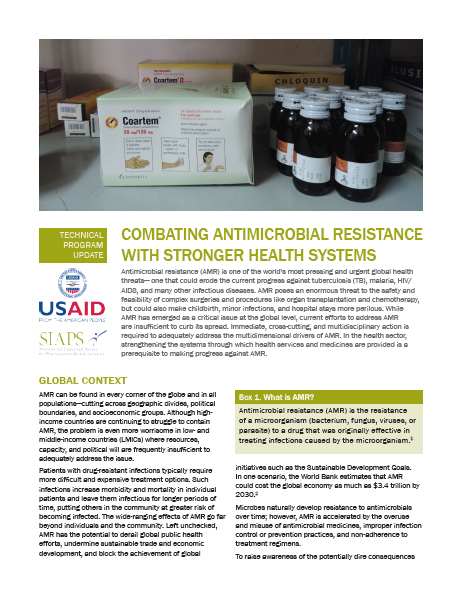
Antimicrobial resistance (AMR) is one of the world’s most pressing and urgent global health threats— one that could erode the current progress against tuberculosis (TB), malaria, HIV/AIDS, and many other infectious diseases. AMR poses an enormous threat to the safety and feasibility of complex surgeries and procedures like organ transplantation and chemotherapy, but could also make childbirth, minor infections, and hospital stays more perilous. While AMR has emerged as a critical issue at the global level, current efforts to address AMR are insufficient to curb its spread. Immediate, cross-cutting, and multidisciplinary action is required to adequately address the multidimensional drivers of AMR. In the health sector, strengthening the systems through which health services and medicines are provided is a prerequisite to making progress against AMR.
This technical program update discusses how the Systems for Improved Access to Pharmaceuticals and Services (SIAPS) Program, funded by the US Agency for International Development (USAID), is working to address AMR through a health system strengthening approach with interventions spanning the global, regional, national, and local levels.


